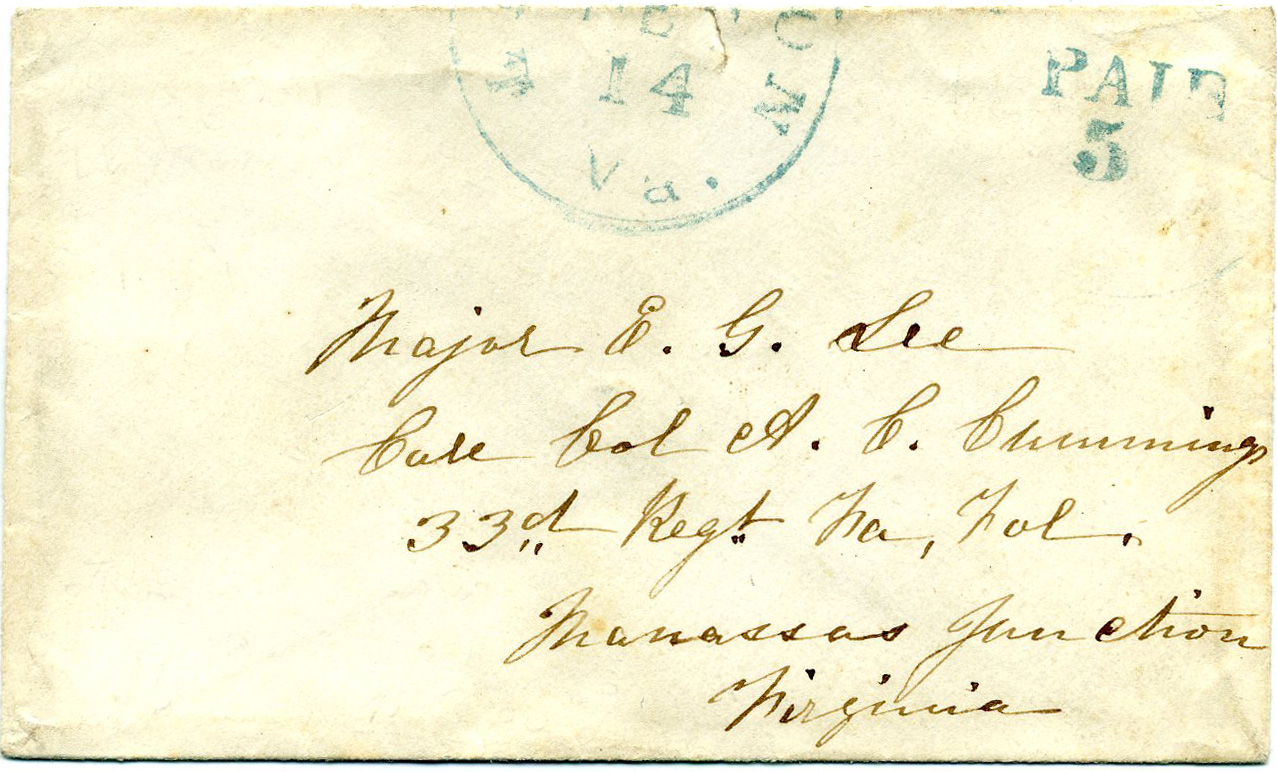-
Confederate Postal History
- CSA 1 on Cover, Section 1
- CSA 1 on Cover, Section 2
- CSA 2 on Cover
- CSA 3 on Cover
- CSA 4 on Cover
- CSA 5 on Cover
- CSA 6 on Cover
- CSA 7 on Cover Section 1
- CSA 7 on Cover Section 2
- CSA 8 on Cover
- CSA 9 on Cover
- CSA 10 on Cover
- CSA 11 on Cover Section 1
- CSA 11 on Cover Section 2
- CSA 11 on Cover Section 3
- CSA 12 on Cover Section 1
- CSA 12 on Cover Section 2
- CSA 12 on Cover Section 3
- CSA 13 on Cover
- Advertising and College Covers
- Blockade-Run Mail
- Confederate Patriotic Covers Section 1
- Confederate Patriotic Covers Section 2
- Independent State & US Used in Confederacy Section 1
- Independent State & US Used in Confederacy Section 2
- Miscellaneous Section 1
- Miscellaneous Section 2
- Mourning Covers
- Official Semi-Official and State Imprints Section 1
- Official Semi-Official and State Imprints Section 2
- Postmasters' Provisionals on Cover Section 1
- Postmasters' Provisionals on Cover Section 2
- Postmasters' Provisionals on Cover Section 3
- Prisoner of War & Cilvilian Flag of Truce Section 1
- Prisoner of War & Cilvilian Flag of Truce Section 2
- Prisoner of War & Cilvilian Flag of Truce Section 3
- Railroad Covers
- Sternes Correspondence
- Wallpaper Covers
- Confederate Stampless
-
Confederate Stamps
- Essays, Proofs, Private Printings
- Postmasters' Provisionals Section 1
- Postmasters' Provisionals Section 2
- Confederate Use of US Postage
- CSA 1 5 Cents Lithograph
- CSA 2 10 Cents Lithograph
- CSA 3 2 cents Lithograph
- CSA 4 5 cents Lithograph
- CSA 5 10 Cents Lithograph
- CSA 6 5 Cents Typograph
- CSA 7 5 Cents Typograph
- CSA 8 2 Cents Engraved
- CSA 9 10 Cents Engraved
- CSA 10 10 Cents Engraved
- CSA 11 10 Cents Engraved, Section 1
- CSA 11 10 Cents Engraved, Section 2
- CSA 12 10 Cents Engraved, Section 1
- CSA 12 10 Cents Engraved, Section 2
- CSA 13 20 Cents Engraved
- CSA 14 1 Cent Typograph
- Philatelic Literature
Navigate from drop-down boxes above or TABLE OF CONTENTS
In lot descriptions:
SCV = Scott Catalogue Value
CCV = 2012 CSA Catalog Value
Unused = no gum unless noted
Content anywhere underlined in blue is a clickable link - follow it
CSA Catalog vs. Scott Color Designation Chart
Click on thumbnails to enlarge
and see full item information
Please use Secure Interactive Order Form and carefully read the
Ordering and Sales Policies page before ordering.

Item# 16320
Price: $250
LEXINGTON / Va. // FEB / 14 [1861] VALENTINE’S DAY postmark. Scott 136XU1 as postmaster provisional but with caveat that it is indistinguishable from a stampless cover when used. Thus must be considered a stampless use. Addressed to the second cousin of Gen. Robert E. Lee: “Major E. G. Lee (later brigadier general) Care Co. A. C. Cumming, 33rd Regt. Va. Vol. Manassas Junction, Virginia.” E. G. Lee was aide-de-camp to Stonewall Jackson and later served in the Confederate Secret Service. Sealed opening flap tears extending over the top into small tear into the cds, otherwise Very Fine. Plantation Collection. $250.
Edwin Gray Lee (1836-1879) was a Civil War Confederate Brigadier General. Born at his family's estate, Leeland, in Loudoun City, Virginia; he was a second cousin of Robert E. Lee. He was graduated from William and Mary College, then attended Washington College, (now known as Washington and Lee), where he received his law degree in 1859. His wife was Susan Pendleton, daughter of future Confederate General William N. Pendleton. He entered Confederate service in April 1861 as a 2nd Lieutenant in the 33rd Virginia Infantry. Soon elected 1st Lieutenant, he served as an aide-de-camp to Brigadier General Thomas J. "Stonewall" Jackson during the First Bull Run Campaign. Rejoining the 33rd, which was now a part of the Stonewall Brigade, he rose in rank to Major, then Lieutenant Colonel. He fought in the Shenandoah Valley Campaign of 1862 and in the Seven Days' battles. Promoted to Colonel, he led his regiment at the Battles of Second Bull Run and Antietam. Shortly after Antietam, he was captured while visiting his ill father but was freed in time to fight at Fredericksburg. Shortly after the last engagement, in December 1862, taking his doctor's advice, he resigned because of ill health. But he soon returned to duty, and was commissioned and assigned to Richmond. On May 17, 1864, he was transferred to Staunton, Virginia, where he recruited local troops for the defenses in the Shenandoah Valley. Promoted to Brigadier General on September 23rd of that year, in November, he again left the army for reasons of health. On February 24, 1865, the Confederate Senate rejected his appointment to Brigadier, however he was already on a mission to Canada. He and his wife ran the blockade and settled in Montreal. He remained in Canada until early 1866, dispensing funds to needy Confederates in exile. Returning, he was a witness at the trial of Lincoln assassination accomplice, John Surratt, whom he had known in Montreal. He also looked after the interests of the St. Albans raiders while they were in a Canadian prison. The next few years were spent in an unsuccessful attempt to improve his long-failing health. He died at Yellow Sulphur Springs, Virginia, from a "disease of the lungs."
